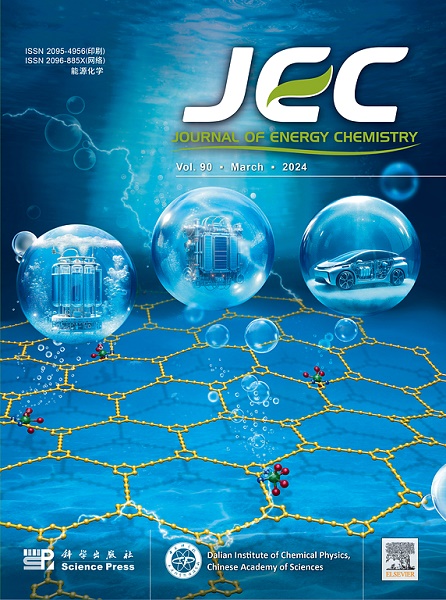Targeting stability: Recent progress and perspectives on both anode and cathode interface of halide solid electrolytes
IF 13.1
1区 化学
Q1 Energy
引用次数: 0
Abstract
Halide solid-state electrolytes (SSEs) have become a new research focus for all-solid-state batteries because of their significant safety advantages, high ionic conductivity, high-voltage stability, and good ductility. Nonetheless, stability issues are a key barrier to their practical application. In past reports, the analysis of halide electrolyte stability and its enhancement methods lacked relevance, which limited the design and optimization of halide solid electrolytes. This review focus on stability issues from a chemical, electrochemical, and interfacial point of view, with particular emphasis on the interaction of halide SSEs with anode and cathode interfaces. By focusing on innovative strategies to address the stability issue, this paper aims to further deepen the understanding and development of halide all-solid-state batteries by proposing to focus research efforts on improving their stability in order to address their inherent challenges and match higher voltage cathodes, paving the way for their wider application in the next generation of energy storage technologies.

瞄准稳定性:卤化物固体电解质正极界面研究进展与展望
卤化物固态电解质以其显著的安全性、高离子电导率、高电压稳定性和良好的延展性成为全固态电池研究的新热点。然而,稳定性问题是其实际应用的主要障碍。在以往的报道中,卤化物电解质稳定性及其增强方法的分析缺乏相关性,这限制了卤化物固体电解质的设计和优化。本文主要从化学、电化学和界面的角度对稳定性问题进行了综述,特别强调了卤化物ssi与阳极和阴极界面的相互作用。通过聚焦解决稳定性问题的创新策略,本文旨在进一步加深对卤化物全固态电池的理解和发展,提出将研究重点放在提高其稳定性上,以解决其固有的挑战,并匹配更高电压的阴极,为其在下一代储能技术中的更广泛应用铺平道路。
本文章由计算机程序翻译,如有差异,请以英文原文为准。
求助全文
约1分钟内获得全文
求助全文
来源期刊

Journal of Energy Chemistry
CHEMISTRY, APPLIED-CHEMISTRY, PHYSICAL
CiteScore
19.10
自引率
8.40%
发文量
3631
审稿时长
15 days
期刊介绍:
The Journal of Energy Chemistry, the official publication of Science Press and the Dalian Institute of Chemical Physics, Chinese Academy of Sciences, serves as a platform for reporting creative research and innovative applications in energy chemistry. It mainly reports on creative researches and innovative applications of chemical conversions of fossil energy, carbon dioxide, electrochemical energy and hydrogen energy, as well as the conversions of biomass and solar energy related with chemical issues to promote academic exchanges in the field of energy chemistry and to accelerate the exploration, research and development of energy science and technologies.
This journal focuses on original research papers covering various topics within energy chemistry worldwide, including:
Optimized utilization of fossil energy
Hydrogen energy
Conversion and storage of electrochemical energy
Capture, storage, and chemical conversion of carbon dioxide
Materials and nanotechnologies for energy conversion and storage
Chemistry in biomass conversion
Chemistry in the utilization of solar energy
 求助内容:
求助内容: 应助结果提醒方式:
应助结果提醒方式:


